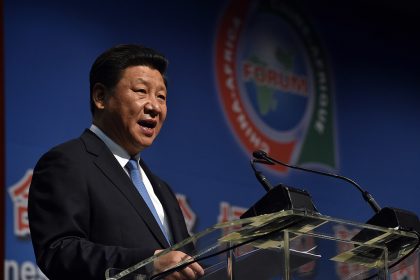In a move to dominate the industry, Chinese president Xi Jinping has urged the country to accelerate the adoption of blockchain.
Although China has introduced an absolute ban on cryptocurrencies in 2017, the country has been making major developments in the blockchain space. Currently, China holds the most number of patents in the blockchain sector, leading its rival U.S. by a considerable margin.
In a move to dominate the blockchain industry, Chinese president Xi Jinping has urged the country to accelerate the adoption of blockchain technologies. In the future, the country with higher technological superiority will dominate global trade and commerce. And the writing on the wall is clear that the two economic powerhouses – U.S. & China – are engaged in a close battle.
Xi’s comments came during a Politburo Committee session speaking on blockchain technology and trends. He stressed that the integration of blockchain technologies will be the key driver to industrial transformation and technological innovation. Addressing the committee, Xi said:
“We must take blockchain as an important breakthrough for independent innovation of core technologies, clarify the main directions, increase investment, focus on a number of key technologies, and accelerate the development of blockchain and industrial innovation.”
However, China is very clear on its stand that it just wants to promote blockchain use and not cryptocurrencies. The communist country doesn’t want to risk is economic stronghold by allowing digital assets in its financial ecosystem.
Ban Public Cryptocurrencies, Promote CBDC
It is not that China is completely averse to the benefits crypto assets and digital currencies can bring. It is just not open to allowing decentralized public cryptocurrencies like Bitcoin. While China has banned cryptocurrencies two years back, its central bank – People’s Bank of China (PBoC) – is actively working on launching the central bank digital currency (CBDC) or the digital renminbi.
With big organizations like Facebook entering the crypto space, China is aware of the global competition. As a result, it has accelerated the development of its CBDC token with no time-table for launch at the moment.
Citing the threat of Facebook’s Libra launch next year, Chinese tech giant Tencent said that local payment services like Alipay and WeChat pay will struggle in case Facebook dominates the global payments industry. “Any internet company that has a relatively mature digital payment system, such as WeChat Pay and Alipay, would be threatened by the stablecoin if it is ever launched,” the company said.
On the other hand, Facebook is showcasing China’s accelerated CBDC developments to convince its lawmakers on Libra launch. In his recent testimony to the U.S. Congress, Facebook CEO Mark Zuckerburg told the U.S. lawmakers that if “China is moving quickly to launch a similar idea in the coming months”. “We can’t sit here and assume that because America is today the leader that it will always get to be the leader if we don’t innovate”, added he.
next